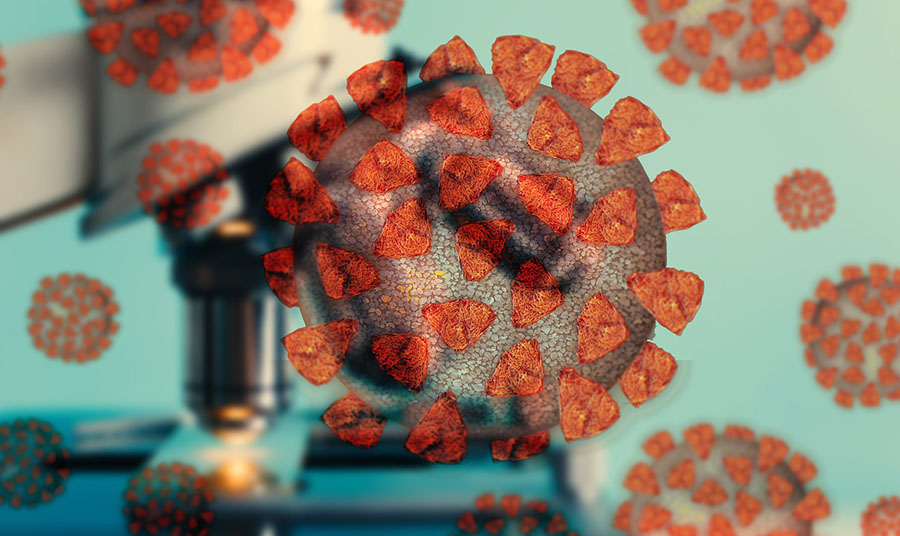The United States and European Union have an annual burden of one million Clostridoides difficile enterocolitis cases, divided about equally between the two regions. To regulatory agencies, this is a crisis situation, and for several reasons. C. diff. causes diarrhea so prolific that the hemodynamic consequences (hypotension, renal failure) are similar to those of serious gastrointestinal bleeding, and patients end up in intensive care units. Complications, such as toxic megacolon, are expensive to treat. Primarily a problem in patients age 65 and older, C. diff. abuses the body and results in death in up to 5% of sufferers, depending upon which study you consult.
The real crisis, however, is lack of good antibiotic therapies. Infectious disease experts now recommend against metronidazole because of its high failure rate. Fidaxomicin is priced too high to be competitive, which means that invariably clinicians resort to oral vancomycin. Probiotic supplementation is proven to be of no therapeutic value, and the American system is practicing a moratorium on fecal transplants on concern the fecal donor may harbor pathogenic flora unknown to the donor but capable of causing great harm or death when placed into a colon inflamed by C. diff. Reluctantly, the treating clinician writes once again for vancomycin, knowing 25% of patients so treated will relapse with C. diff., and knowing that part of the reason for this is profound collateral damage to the fecal biome; vancomycin slays many "good" bacteria that would otherwise serve to keep C. diff. at bay.
Acurx, an emerging private firm founded by David Luci, CPA, JD, and Sanofi veteran Robert DeLuccia, MBA, owns an intellectual property estate of DNA polymerase IIIc inhibitors, and as such is promulgating the first new class of antibiotics in 30 years. Gram-positive organisms generally experience inhibition of DNA polymerase IIIc as a lethal event. C. diff. is a Gram-positive anaerobic bacillus or rod-shaped organism.
Acurx's lead agent ibezapolstat is non-absorbable and displayed no host toxicity issues in phase 1. The agent has been so successful in phase 2a, an open-label single arm study that has resulted in quick cures of all the first six enrolled patients, that the company is contemplating proceeding early to phase 2b, in which patients will be randomized to vancomycin or ibezapolstat for 5–7 days.
The most provocative or promising analysis of a prospective biotech investment pivots, of course, on one major factor: the competitive landscape, competition in biotech being both stealth and ubiquitous. A comprehensive survey of major antibiotic development programs reveals one potentially significant competitor to Acurx: Summit plc ($SMMT), whose oral non-absorbed agent ridinilazole is now in phase 3 against C. diff. Vexingly, the mechanism of action of ridinilazole remains unclear. What is clear is that it is a narrow-spectrum antibiotic in activity, and unlike vancomycin, tends to be fecal-biome preserving.
Summit is now conducting two large phase 3 studies, subsuming over 1,300 patients, comparing ridinilazole 10 days vs vancomycin 10 days, orally in both cases. The sought endpoint is superiority to vancomycin. Meanwhile based on program development guidance from the FDA, Acurx plans to pursue non-inferiority of ibezapolstat to vancomycin after five to seven days of dosing. These are two quite different scenarios indeed, and as to success, we'd only back the Acurx scenario. As of this writing, we are unclear on why Summit is pursuing a superiority-to-vancomycin primary outcome.
Who will win? Possibly both will, though ibezapolstat investigators have derived a sense from early trials that ibezapolstat cures are rapider than expected. Meanwhile, a considerable body of pre-clinical literature on ibezapolstat suggests that it alters the fecal biome to a state that confers relative resistance to C. diff. The mechanism for this may differ from the mere flora-sparing effects of narrow-spectrum ridinilazole. We concede that while ridinilazole's mechanism of action is unknown, this tends to be unimportant to FDA reviewers so long as the sponsoring company can prove host nontoxicity, noncarcinogenicity and efficacy. But ibezapolstat represents the vanguard agent in a class, DNA polymerase IIIc inhibitors, non-toxic versions of which have been sought by the pharma industry for decades. Mammals lack any enzyme similar to DNA polymerase IIIc, and its constitutive necessity in Gram-positive pathogens is well known. The enzyme is an ideal drug target.
Based on careful consultative analysis of the antimicrobials market, Acurx envisions an $850 million annual market for its agent if ridinilazole development does not succeed, and a $500 million ibezapolstat market if the other agent is approved for marketing. These are numbers based on merely one of two agents in development owned by Acurx that would support a potential takeover price of US$1 billion or more.
Acurx is attractive as a pre-market investment opportunity when its pre-money valuation is perhaps $75 million. In contrast, $SMMT, a UK firm with market capitalization of around $250 million, is harder to envisage as a compelling investment opportunity based on lack of analyst interest and minimal appreciation in PT. Further derisking of ibezapolstat is likely to represent a far more significant value inflection point for investors than successful outcomes in phase 3 would be for Summit.
Acurx is selling shares direct to the public in a late crossover round, one that closes 30 September 2020, for $3.25 per share (no warrants). Partners Luci and DeLuccia intend to take the firm public in 2021 and bring a second agent for resistant Staph and vancomycin-resistant Enterococcus to investigational new drug application. The company welcomes participation in this round of non-accredited investors from any nation.
Further information can be obtained from BioPub.co; San Diego Torrey Hills Capital, Acurx's IR firm; or Acurx directly.
Dr. KSS is the founder and editor-in-chief of BioPub.co. He is an MD with an additional PhD in biochemistry, and for the past 20 years, in addition to practicing, being a researcher, and conducting clinical trials, he has been investing in biotech companies with great success. Dr. KSS earned his degrees at a top 10 U.S. institution, where he was an NIH scholar and graduated with top honors. He has extensive post-doctoral research experience and am board certified in internal medicine and also gastroenterology. His goal is to discuss companies and use discussions of their technology, their drugs or planned drugs, as ways of teaching about physiology and disease states, along with their issues and opportunities.
[NLINSERT]Disclosure: The author has a long position in Acurx from participation in series A, series B and crossover funding rounds. The above is neither a recommendation nor a solicitation to purchase shares. BioPub has never been compensated by a company for covering it and declines such compensation. Because of illiquidity and potential for loss of all invested capital, pre-market investing entails exceptional risk. Prospective investors are encouraged to discuss investing here with a personal financial advisor prior to acting.
Disclosure:
1) Dr. KSS: disclosures are listed above. I determined which companies would be included in this article based on my research and understanding of the sector.
2) The following companies mentioned in this article are billboard sponsors of Streetwise Reports: None. Click here for important disclosures about sponsor fees.
3) Statements and opinions expressed are the opinions of the author and not of Streetwise Reports or its officers. The author is wholly responsible for the validity of the statements. The author was not paid by Streetwise Reports for this article. Streetwise Reports was not paid by the author to publish or syndicate this article. Streetwise Reports requires contributing authors to disclose any shareholdings in, or economic relationships with, companies that they write about. Streetwise Reports relies upon the authors to accurately provide this information and Streetwise Reports has no means of verifying its accuracy.
4) This article does not constitute investment advice. Each reader is encouraged to consult with his or her individual financial professional and any action a reader takes as a result of information presented here is his or her own responsibility. By opening this page, each reader accepts and agrees to Streetwise Reports' terms of use and full legal disclaimer. This article is not a solicitation for investment. Streetwise Reports does not render general or specific investment advice and the information on Streetwise Reports should not be considered a recommendation to buy or sell any security. Streetwise Reports does not endorse or recommend the business, products, services or securities of any company mentioned on Streetwise Reports.
5) From time to time, Streetwise Reports LLC and its directors, officers, employees or members of their families, as well as persons interviewed for articles and interviews on the site, may have a long or short position in securities mentioned. Directors, officers, employees or members of their immediate families are prohibited from making purchases and/or sales of those securities in the open market or otherwise from the time of the interview or the decision to write an article until three business days after the publication of the interview or article. The foregoing prohibition does not apply to articles that in substance only restate previously published company releases.
6) This article does not constitute medical advice. Officers, employees and contributors to Streetwise Reports are not licensed medical professionals. Readers should always contact their healthcare professionals for medical advice.



























































